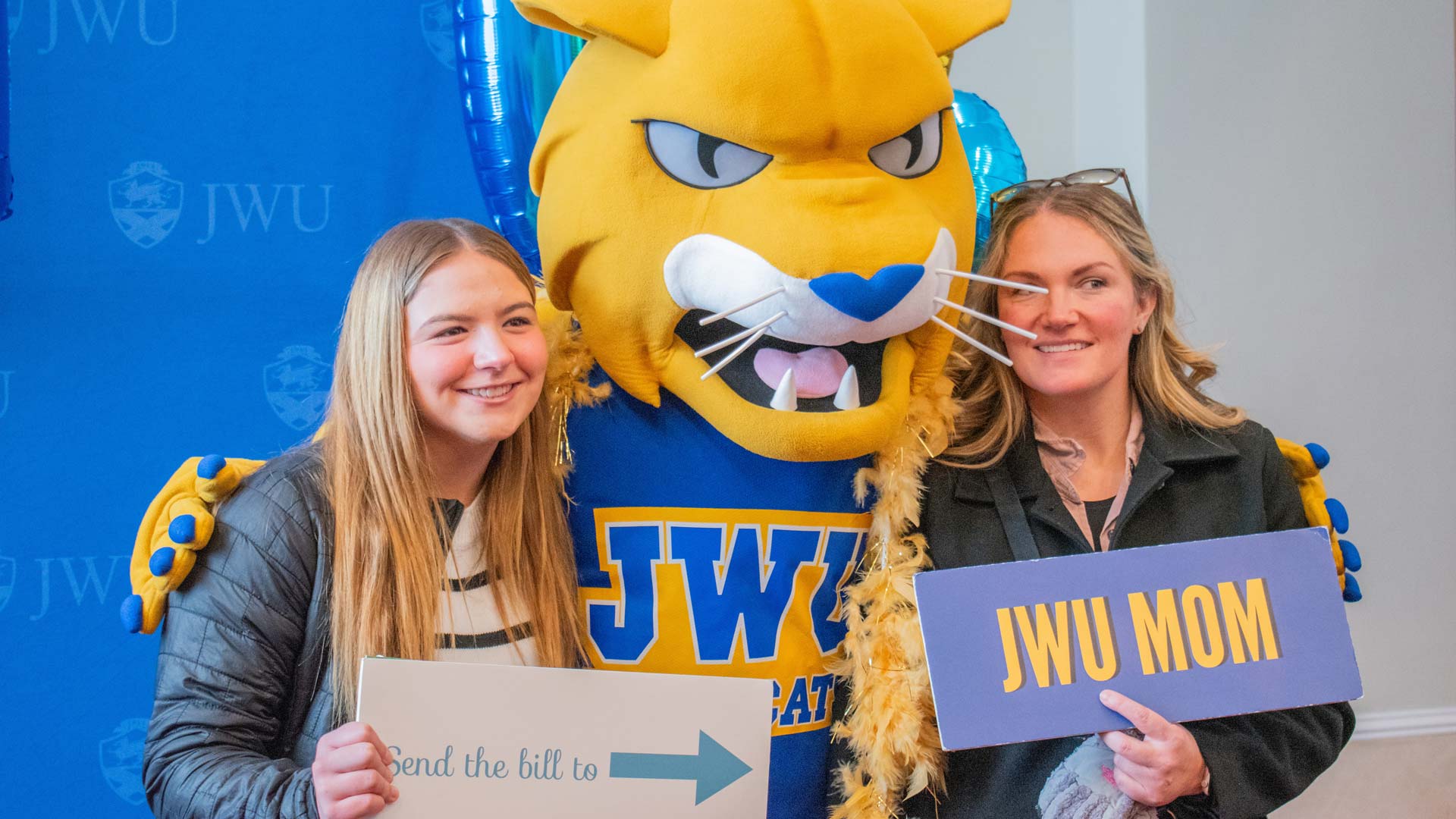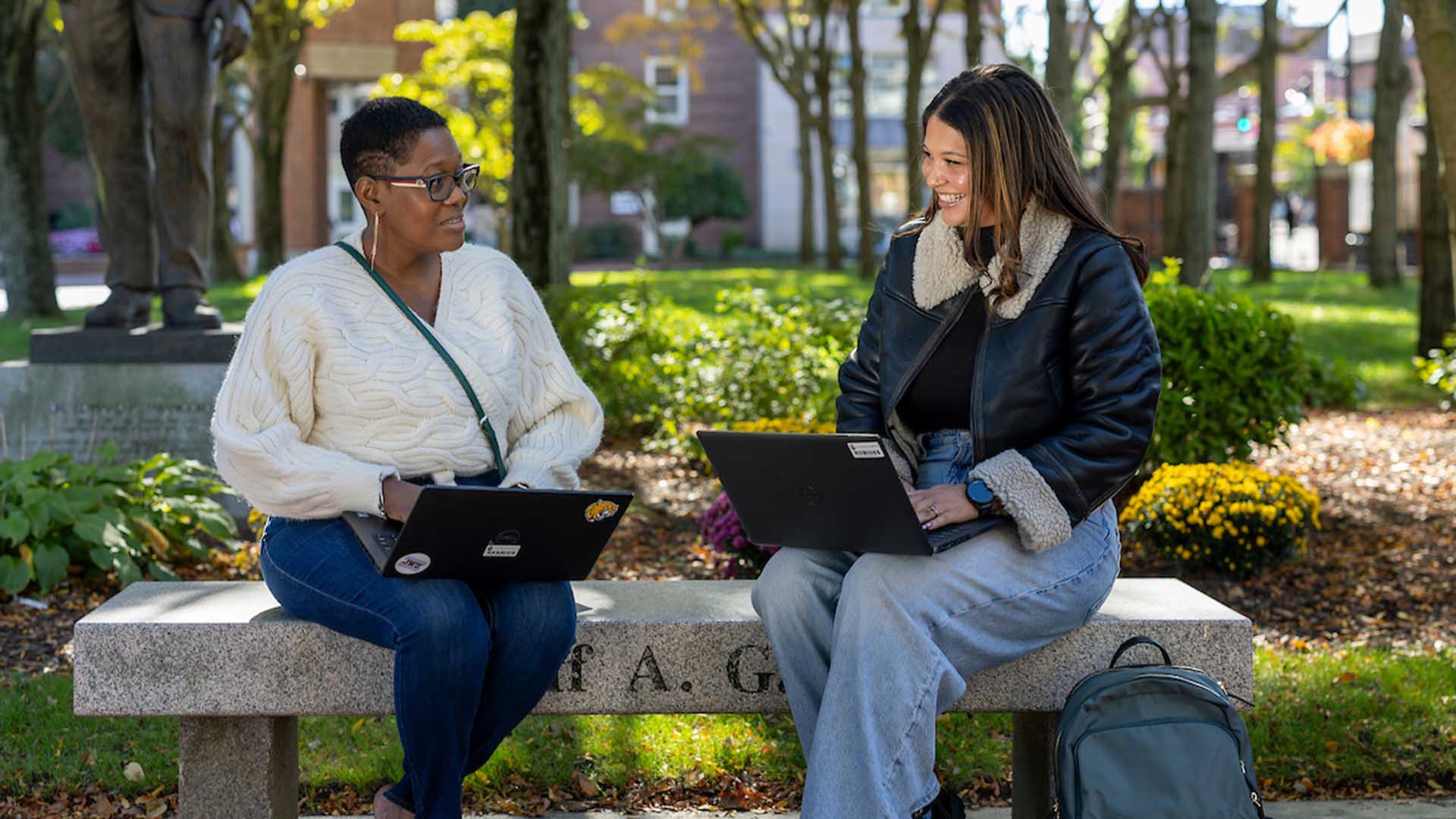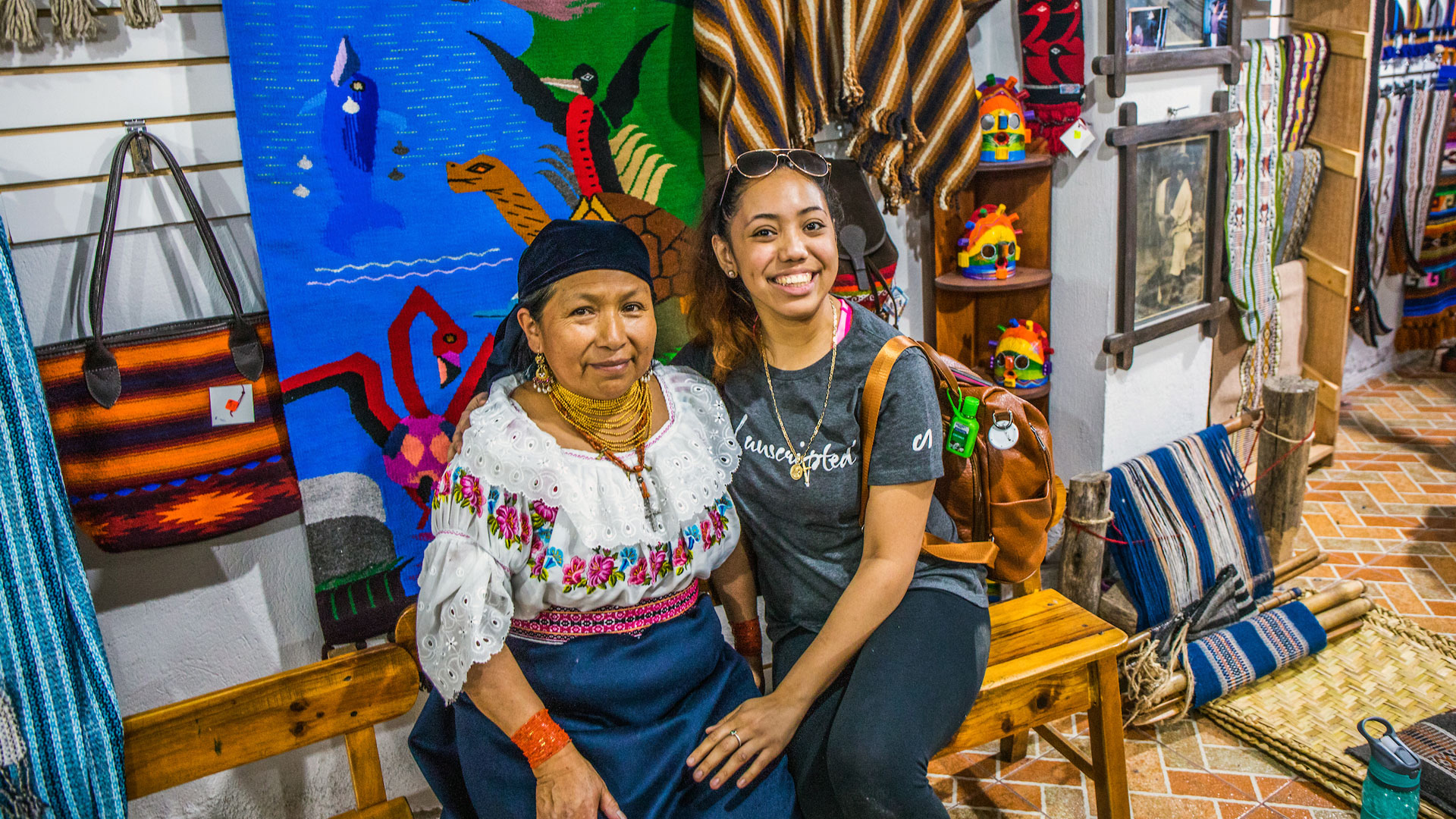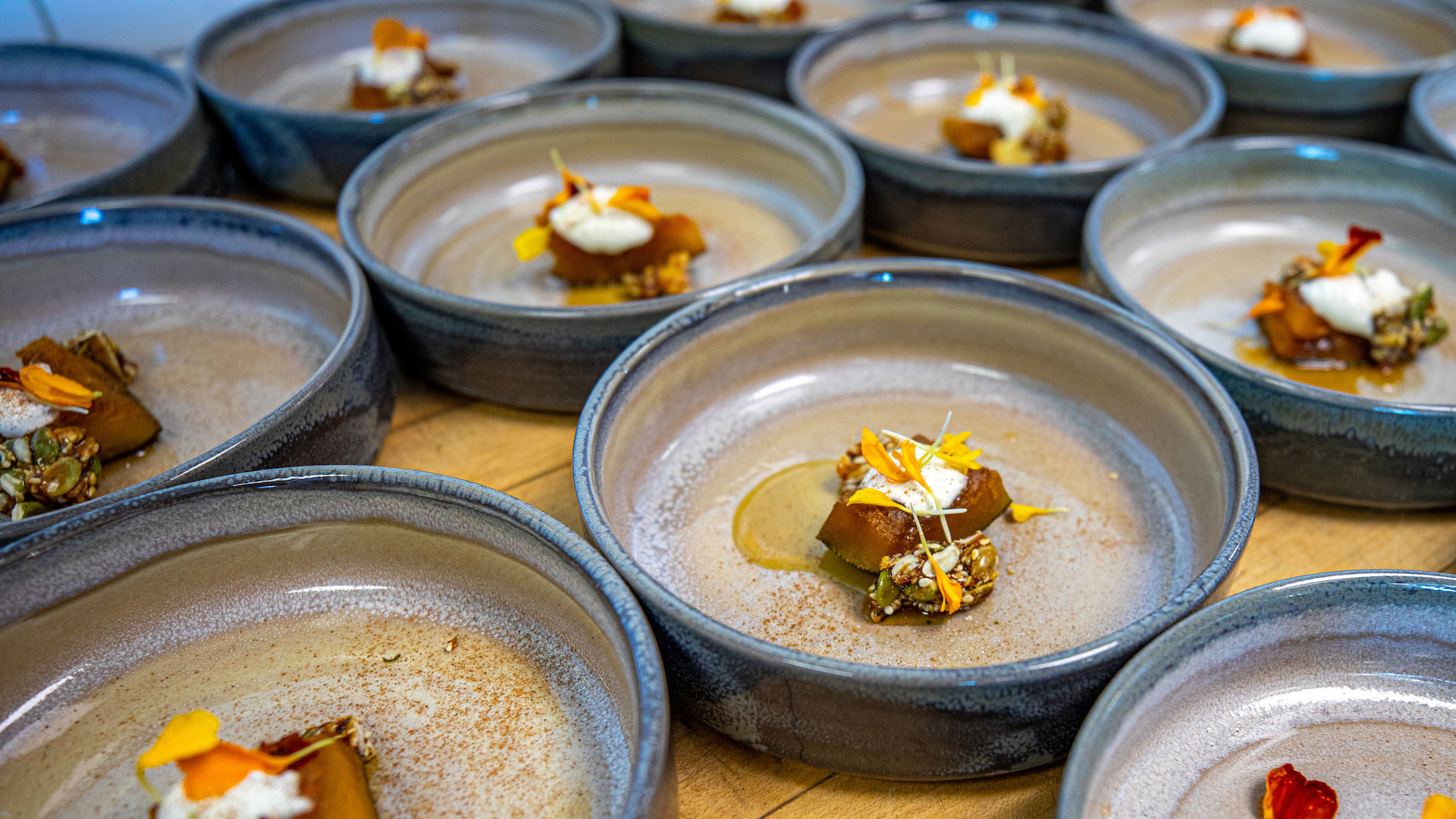5 Surprising Facts About JWU’s Founders
To be completely honest, when I first applied to JWU I had no idea that the school was founded by women. When I found out, I was amazed and shocked that I never knew this information! In honor of Women’s History Month and to pay homage to the founders of JWU, I decided to take a look back in time to learn more about my school’s founders, Gertrude I. Johnson and Mary T. Wales. Here are five facts that I have learned about JWU’s founding mothers.
Below: Gertrude Johnson & Mary Wales founded JWU before women even had the right to vote.
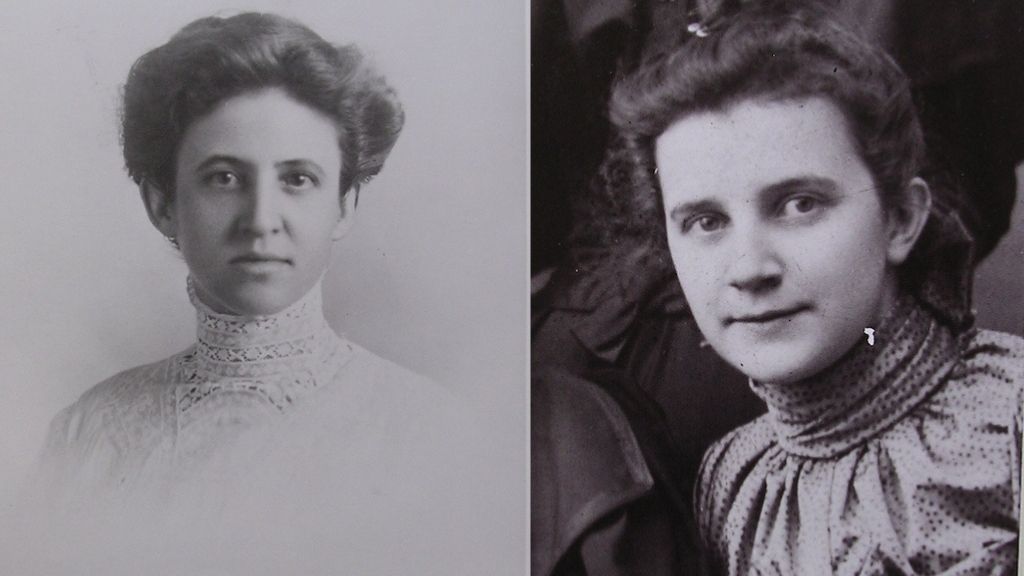
1. Johnson & Wales were almost complete opposites.
Students of Gertrude I. Johnson described her as tough, stern and not to be messed with. There was a period of time when Ms. Johnson’s students would refer to her as G.I. Johnson because of her initials and how tough she was. If a student disrupted her class and she thought they should leave, she’d go up to them and tell them they are “discharged.” Despite these descriptions of Johnson, her students were very fond of her. They knew she cared deeply for them and felt that she was like a mother to them.
In contrast, Mary T. Wales was described as a petite, soft-spoken and gentle woman. Although Wales was soft-spoken, she did not let others walk over her. Underneath that soft exterior was a tough woman who did not let others boss her around.
2. Johnson & Wales broke gender barriers.
According to Marian Gagnon, longtime JWU faculty member and writer/editor of “HERStory: The Founding Mothers,” the duo decided to open their own school and founded Johnson & Wales Business School with one student and one typewriter in Gertrude’s home at 250 Hope St. in Providence.
Gagnon notes that the opening of Johnson & Wales coincides with World War I as men march off to war, unlocking the door to women in the workplace. The business school aims to get women out of the factories and into professional office work. Women still don’t have the right to vote, yet Misses Johnson & Wales are breaking gender barriers and forging a definitive path for women. Over the next 30 years, they position J&W as a “career” school with its mission: “We should teach a thing not for its own sake, but as preparation for what lies beyond.”
Johnson and Wales were not just business partners — they were each other’s greatest advisors. One would not do anything without letting the other know and getting their opinion. They never fought or said anything negative about the other. They truly cared for and respected each other. They also lived together in Warwick, R.I.
3. They studied at the same school.
Long before becoming business partners and opening up the university we know today, Johnson and Wales originally met in the late 1800s at the Pennsylvania State Normal School. At the time, Gertrude was 17 and Mary was 19. Mary graduated in 1893 and Gertrude graduated in 1895.
After they graduated, they ended up going their separate ways until about 20 years later when they started working together at the Rhode Island Commercial School, now known as Bryant College.
Below: JWU’s Providence Campus was founded in 1914.

4. They believed education to be extremely important.
Although we all love a day off here or there, their philosophy was that you should be in school rain or shine, sick or healthy and they lived by it. There have been times reported where they were sick but they still went to work to teach regardless and they expected their students to do the same. This became even clearer when, in the 1940s, Wales was diagnosed with cancer. However, despite her illness, she would still go to school to be there for Johnson.
5. They started the school from their home with nothing but a typewriter and one student.
It’s easy to think of Johnson & Wales as the institution it has become today, but it had a much more modest beginning. While they were working together at Bryant College, they came up with the idea to create their own school. They wanted to work for themselves so that they could be in charge of what they taught. So in 1914 they opened up a school in Gertrude’s home and called it Johnson & Wales Business School.
JWU expanded to Charlotte, N.C., in 2004.

In 1947, as Wales’ cancer continued to get worse, the pair retired, leaving the school to Edward Triangolo and Morris Gaebe. Since then, the school has grown immensely and has become an internationally recognized university.
It’s important that during this month and every other month that we take a look at how much Johnson and Wales were able to accomplish in their time. As women in the late 1800s and early 1900s, Johnson & Wales were able to pave the way for other women to grow into strong leaders like themselves. They inspired many women around them simply because of how they were just able to exist and grow in a male-dominated world. But just like in its founding years, JWU today has continued to empower women to become leaders like Johnson & Wales.
Below: Continuing the founders’ legacy, much of JWU’s leadership is female, including our university chancellor and Providence Campus president.

Below: JWU’s pioneering female founders set the stage for future generations of female leaders.

